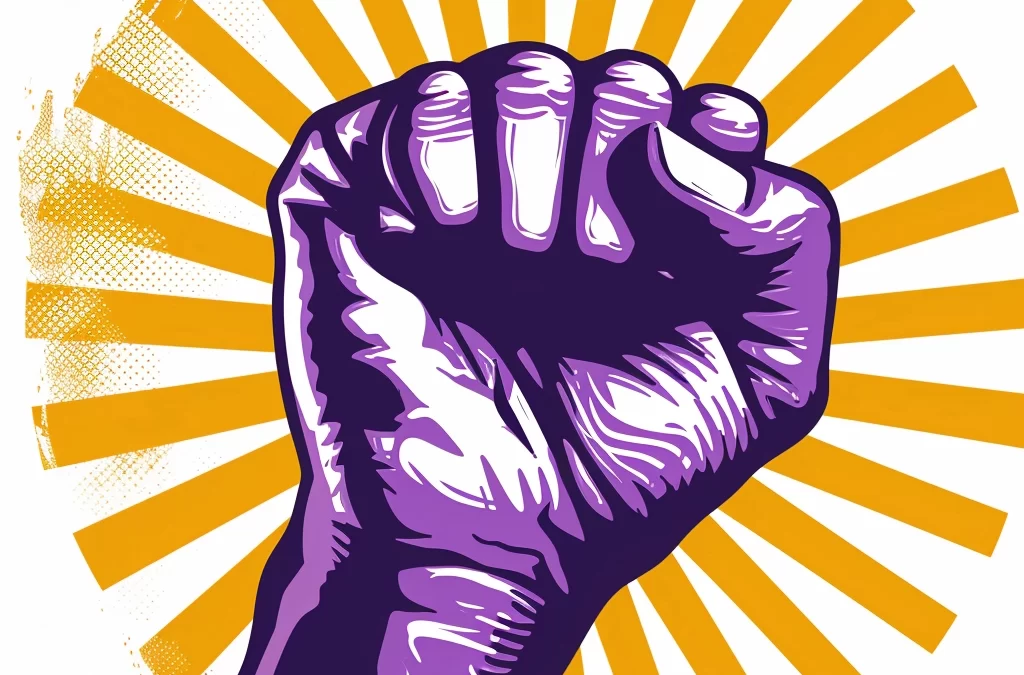When Jason Sandoval, former president of DLC 703, called into an “SEIU Listens to You” episode with Board Chair Bill Hall and Political Director Omega Brewer-Gonzales to talk about a parking issue in Riverside, a campaign that would bring together workers across his community began.
He described the massive rate hikes workers were facing due to the city council’s newly approved parking policies. While it was clear that these changes were affecting state workers, SEIU Local 1000 members discovered that the entire community was struggling with these rising prices.
When Jason Sandoval, former president of DLC 703, called into an “SEIU Listens to You” episode with Board Chair Bill Hall and Political Director Omega Brewer-Gonzales to talk about a parking issue in Riverside, a campaign that would bring together workers across his community began.
He described the massive rate hikes workers were facing due to the city council’s newly approved parking policies. While it was clear that these changes were affecting state workers, SEIU Local 1000 members discovered that the entire community was struggling with these rising prices.
“We built a coalition with the restaurants and community members. We went door-to-door talking to everyone in the area,” said Bill Suhar, a SEIU Local 1000 member working as a janitor at California Tower. “All of our stewards came together to bring people together, backed up by SEIU Local 1000 leaders. It took all of us to pull the city council together and show the support and solidarity we had.”
The city had raised parking rates to fix their revenue issues. However, as soon as the policy went into effect, janitors parking overnight while they cleaned the buildings were suddenly at risk of receiving daily parking tickets while they were at work.
“No one knew that they raised these prices originally,” said Suhar. “I started doing research and discovered that it could cost us almost $40 a day to park. I was on the 2:00 p.m.-10:30 p.m. shift, so these new policies would impact me up to $880 a month just to park at work.”
The broader community needed this to change, and our members led the way. We researched a little-used discount employee parking program in the city that had already existed for years, but it was limited to employees making under $18/hr. Given the cost of living in the area, this excludes most of the employees affected by the parking rates.
By mobilizing workers within Local 1000, and employees and businesses in the area, a coalition of workers were able to take the issue to the city council.
“We ended up having over a hundred people come to the first city council meeting,” said Suhar. “We were there overnight, from 6:00 p.m. to 12:15 in the morning. When they voted, it was 4-2 with one abstention to roll back the rates.”
The city pulled back the hikes completely and announced that they would be doing individual meetings with stakeholders like SEIU Local 1000 and talking to the community. We also were able to secure arrangements for public parking, free of charge for our members. It was a victory on the spot, but we knew we had to make sure the final agreement was something that would allow our members to do their jobs without financial stress.
“Winning an issue like this empowers our members to make more changes in their community. They organized this themselves, brought their own materials, and won it on their own terms,” Suahr said.
The city council stated that this was the first time they saw the council work with organizations to make decisions and propose projects that will affect the city and the people working in it,” said Suhar. “I’m more confident in the city council to listen to working people because SEIU Local 1000 members will stand together to do everything in our power to protect each other.”
SEIU Local 1000’s political work is funded and directed by our Committee on Political Education, or COPE. While COPE is sometimes thought of as just election operations, which is an important piece of our political work, it is much more than that. COPE is a tool for developing partnerships in our communities, developing political education, and leading issue advocacy to elected officials. We train and prepare members to meet with elected officials to move issues forward. This allows everyday people to take a leading role in the political sphere and fight for solutions that we all need.
This victory is not an end to the political work our members can accomplish, but a beginning of a relationship with our elected officials.
“Afterwards, we were able to talk with the city council people about our economic situation,” said Suhar. “We had one-on-one meetings with the elected officials, and backed up with our staff research team, we could show that there was a need for them to raise the discount rate.”
The respect our members earned in the community puts their work and their needs on the map. The city council knows that these state workers, who worked for our state through the pandemic, have power in their community.
